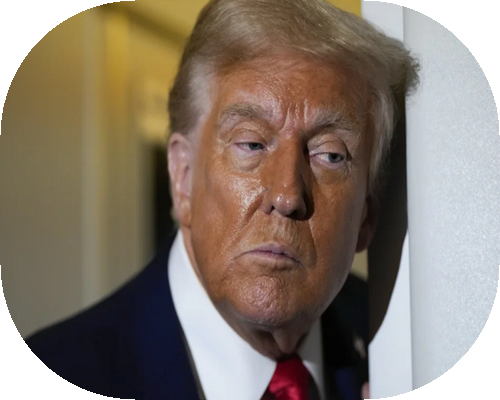“Trust the science,” they said. “Science” was all knowing. “Science” could not be questioned. “Science” seemingly could not be changed. It had reached the level of doctrine. Any deviation became heresy that must be punished.
We have all experienced it. The fear of consequences for merely stating a thought. For expressing an opinion. For sharing information that does not align with the “approved” truth.
On May 23, President Trump took a huge step toward breaking this harmful monopoly of thought, particularly in the federal government, by signing an executive order titled “Restoring Gold Standard Science in America.” The order accomplishes many things, but particularly important is that it encourages the open exchange of ideas, ensures consideration of dissenting viewpoints, and protects employees from efforts to prevent them from presenting alternative views.
The order cites examples of bad science attributed to the federal government. Trump references COVID-19 guidance to close schools that incorporated edicts from unions. He also referenced fishing and environmental regulations that use “worst-case-scenario,” as opposed to realistic scenarios, as assumptions to help the previous administration justify its policy decisions. Since most of us shared the COVID experience, it is the best illustration of why this order is essential.
During the COVID pandemic, scientists experienced the same heavy-handedness from the government that many of us recall. For example, a group of scientists reported that the Food and Drug Administration and Centers for Disease Control pressured doctors to prevent them from prescribing ivermectin for COVID, even threatening professional discipline if it did not conform to their guidance. Some doctors lost their jobs. The courts determined that the government lacked the authority to do this, but the damage had already been done. The administration had the dissenters removed.
In another example of government suppressing theories that “science” disapproved — treatment with hydroxychloroquine — subsequent studies revealed a 15 percent reduction in symptoms for those who took the medication. At a time when little was known about how to treat COVID, “science” should not have been so dogmatic. Even if the drugs were not a cure, they could have helped to manage the outbreak.
The scientific consensus is hardly authoritative, and never has been. Indeed, Ignaz Semmelweis’ theory that handwashing would prevent disease was rejected in his time. The treatment for Parkinson’s disease was created to treat inflammation.
What if “science” had dismissed the drug like it did with potential COVID treatments? There must be room for creativity and innovation, even if it cuts against conventional wisdom.
Yet, this heavy-handed approach has been subtly embedded into official government policies. For example, the National Institutes of Health’s now former Scientific Integrity Policy required scientific information to be “subject to well-established scientific processes.” This flowery yet vague language is a way of creating a gatekeeping function. Only “well-established” ideas can prevail.
Trump’s language is far better. Instead of “well established,” the president chose “unbiased peer review.” It encourages “different or dissenting viewpoints.” The desired language is neutral between established science and alternative ideas.
While the old language seems innocent enough, do not be fooled; it was ideological and political. The effort was a move to thwart the viewpoints of those who oppose progressive science. Politico even applauded the efforts in another portion of these scientific integrity policies. It declared that the Joe Biden administration had figured out a way to “Trump-proof” scientific agencies. NIH’s policy was reflective of this. It banned “political interference.” Whenever a supervisor or political appointee directs science in a “political” direction, the employee has grounds to file a complaint against the superior.
Again, while banning “political” interference sounds good, it is vague. Decoded, in a world where anything that deviates from “science” is labeled “political.”
Thankfully, Trump’s order rescinds these additions to agency scientific integrity policies.
The order does another important thing. It orders agency policies that require scientifically led policymaking to consider “realistic or reasonably foreseeable effects of an action.” Using the COVID example, nationwide closures were heavily informed by the need to reduce the spread of the virus, yet gave little weight to the severe economic effects that closures would have or the harm that school closures would cause to children. That type of decision-making was undeniably bad.
Trump’s order creates a good government. By voting, Americans asked for a change. They rejected some of what “science” offered. For these changes to be implemented, agency leadership requires the authority to direct studies. As long as the data is transparent and verifiable, it is good to explore new ideas.
How useful was this article ?
Click on a star to rate it!
Average rating 5 / 5. Vote count: 1
No votes so far! Be the first to rate this post.
We are sorry that this post was not too useful for you!
Let us improve this post!
Tell us how we can improve this post?















